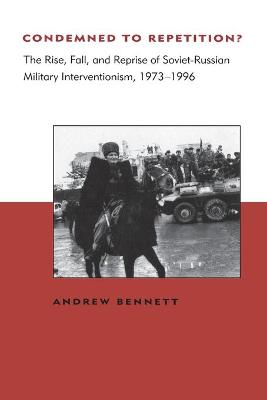Belfer Center Studies in International Security
2 total works
Case Studies and Theory Development in the Social Sciences
by Alexander L. George and Andrew Bennett
The book explains how to design case study research that will produce results useful to policymakers and emphasizes the importance of developing policy-relevant theories. It offers three major contributions to case study methodology: an emphasis on the importance of within-case analysis, a detailed discussion of process tracing, and development of the concept of typological theories. Case Studies and Theory Development in the Social Sciences will be particularly useful to graduate students and scholars in social science methodology and the philosophy of science, as well as to those designing new research projects, and will contribute greatly to the broader debate about scientific methods.
Why did the Soviet Union use less force to preserve the Soviet empire from 1989 to 1991 than it had used in distant and impoverished Angola in 1975? This book fills a key gap in international relations theories by examining how actors' preferences and causal conceptions change as they learn from their experiences. Andrew Bennett draws on interviews and declassified Politburo documents as well as numerous public statements to establish the views of Soviet and Russian officials. He argues that Soviet leaders drew lessons from their apparent successes in Vietnam and elsewhere in the 1970s that made them more interventionist. Then, as casualties in Afghanistan mounted in the 1980s, Soviet leaders learned different lessons that led them to withdraw from regional conflicts and even to abstain from the use of force as the Soviet empire dissolved. The loss of this empire led to exaggerated fears of "domino effects" within Russia and a resurgence of interventionist views, culminating in the Russian invasion of Chechnya in 1994. Throughout this process, Soviet and Russian leaders and policy experts were divided into competing schools of thought as much by the information to which they were exposed as by their apparent material interests. This helps explain how Gorbachev and other new thinkers were able to prevail over the powerful military-party-industrial complex that had dominated Soviet politics since Stalin's time.

